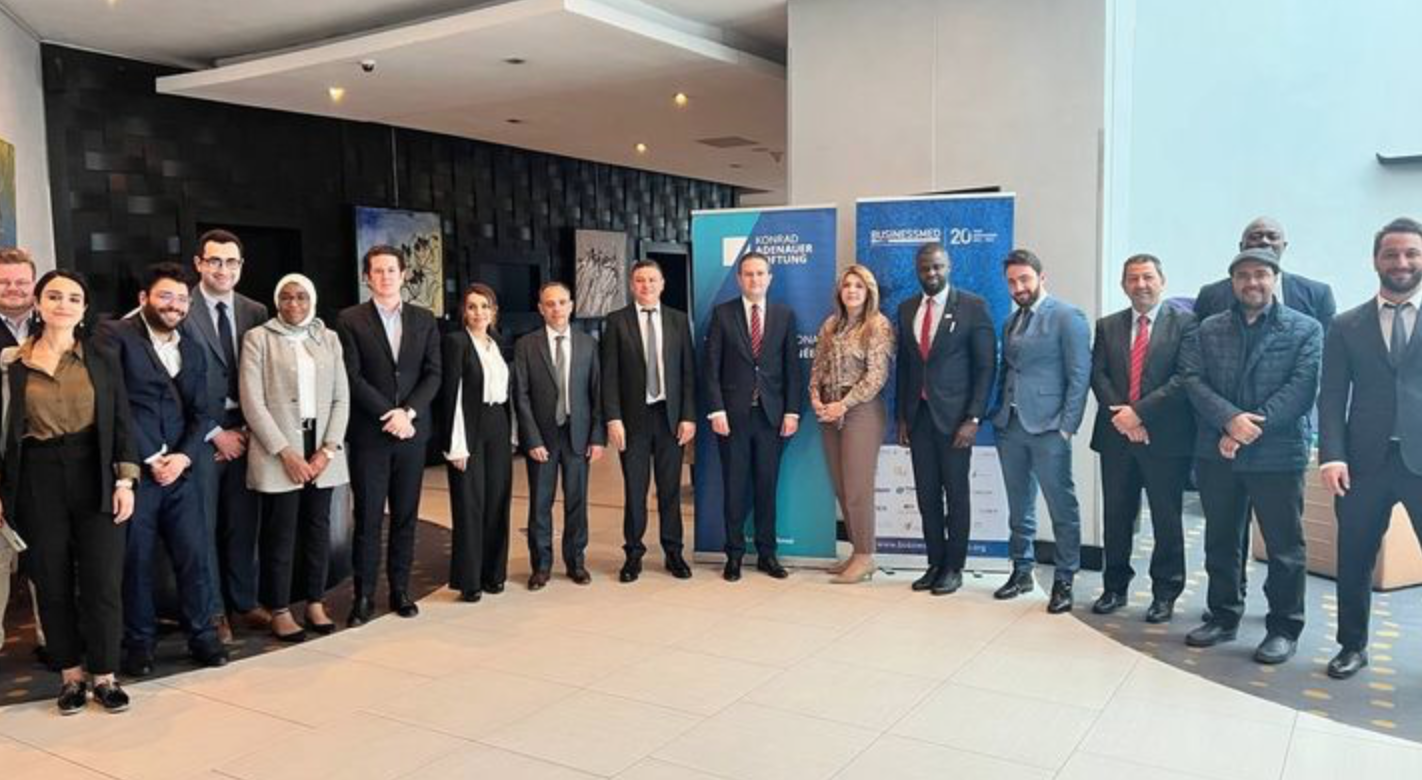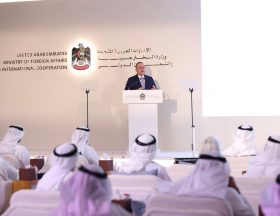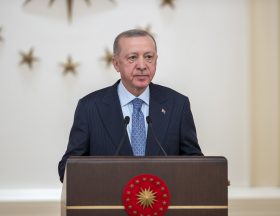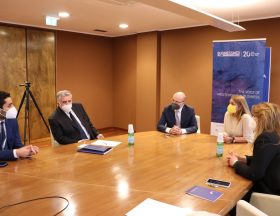As part of efforts to link relief to sustainable economic recovery in the Mediterranean region, the Regional Program Political Dialogue South Mediterranean of the Konrad Adenauer Stiftung (KAS PolDiMed) and the Union of Mediterranean Business Confederations (BUSINESSMED ) have joined forces in organizing a conference on South-South regional integration on the theme: A path to a sustainable post-Covid19 economic recovery.
The main objectives of the conference were to bring together experts and specialists from all over the Mediterranean region and that of sub-Saharan Africa in order to examine the context of South-South economic integration from a legal, academic, professional point of view. and governmental and to provide an overview of the state of the art, challenges and lessons learned from existing economic cooperation mechanisms.
The various discussions and exchanges also aim to highlight the prospects for South-South cooperation after the covid19 conference and to share testimonies and success stories.
The event started with the opening words of Tomas VOLK, Director of KAS Poldimed who underlined the importance of such kind of events for better and more efficient regional integration in the region in order to achieve sustainable economic recovery. after the covid 19 epidemic.
Tomas Volk also said that opening the Mediterranean to Sub-Saharan African countries is no longer an option and is an ideal way to achieve this recovery.
Since emerging in early 2020, the Covid-19 pandemic has continued to challenge and disrupt economies around the world. The impact is particularly significant for Africa, which has seen decades of economic and social progress unravel almost overnight.
The health crisis has exposed and exacerbated pre-existing bottlenecks and endemic problems. Endemic unemployment, unsustainable debt, governance problems, increasing extreme poverty and climate change are enduring structural challenges that preceded the pandemic in sub-Saharan Africa.
Jihen Boutiba, Managing Director of BUSINESSMED, said:
“The South needs to adopt a strategic vision in terms of strengthening its regional value chains as well as intra-regional trade and investment in order to become self-reliant, including through the integration of regional value chains in the health and healthcare sectors. agribusiness, as well as through the strengthening of South-South financial cooperation, etc.
In this sense, the post-covid era could be an opportunity to rethink the value chains within the region by considering the reshoring and nearshoring of companies from the southern shore of the Mediterranean and from sub-Saharan Africa. With regard to South-South cooperation, we at BUSINESSMED believe that the MENA region and the private sector of sub-Saharan Africa are well placed to contribute more to setting African economies on a path of growth. more balanced, broader and more diversified. »
Economies based on extractive resources, notably the continent’s two largest economies (Nigeria and South Africa), have been hardest hit by the 2020 crisis due to falling energy demand. Likewise, countries that depend on tourism, strongly affected by the closure of borders in 2020 and the cessation of international flights, are still today penalized by the health restrictions that continue to be applied in many regions of the world.
Recovery is emerging in both sub-Saharan and North Africa, thanks to the easing of Covid-19 restrictions and the roll-out of vaccines, but it is likely to be uneven. It is therefore essential to conceive of regional integration and cooperation agreements as an integral part of an enabling environment for a more resilient, inclusive and sustainable future.











Réagissez à cet article